Portfolio
Stratford-upon-Avon Business Improvement District
Using culture, collaboration and creative identity to drive town centre renewal
As CEO of the Stratford-upon-Avon Business Improvement District (BID) and Destination Management Organisation, I led the development of a place-based strategy that revitalised one of the UK’s most iconic cultural towns.
At a time of economic uncertainty, digital disruption and redevelopment pressures—including major works at the RSC Swan Theatre—the BID repositioned Stratford as a vibrant, visitor-focused and creatively ambitious destination. With over £1.65 million secured via ballot, and more than £5 million in leveraged investment, we delivered a comprehensive programme of events, marketing and public realm improvements—all rooted in the town’s artistic and literary heritage.
Our programme was deliberately broad and diverse. Flagship events such as the Stratford River Festival and Stratford Food Festival drew tens of thousands of visitors, boosting local trade and strengthening the town’s cultural identity. International marketing campaigns repositioned Stratford on the global stage, while targeted business support initiatives helped local traders adapt to changing consumer behaviour. The creation of a Town Hosts scheme provided a welcoming, visible presence on the streets, enhancing both visitor experience and perceptions of safety.
This holistic approach gained international recognition, with Stratford winning International Destination of the Year and Most Improved Visitor Experience at the ATCM/IDA World Congress. These awards placed Stratford among the world’s leading examples of town centre management and destination development.
The distinctiveness of the work lay in using culture as a unifying driver of regeneration. By uniting local businesses, civic partners and cultural institutions under a shared vision, we developed a model that was inclusive, community-led and economically impactful.
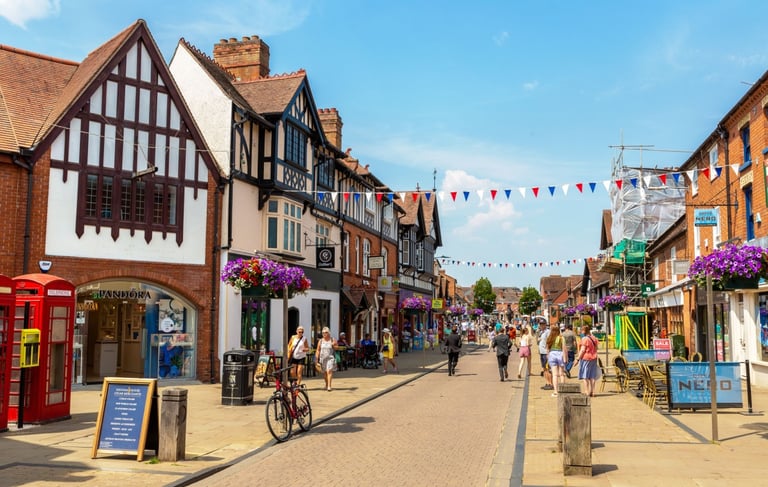

Greater Cambridge Cultural Infrastructure Strategy
Co-creating a live, embedded strategy through deep engagement and regional collaboration
As Managing Partner at Genecon, I led the development of the Greater Cambridge Cultural Infrastructure Strategy—a major commission delivered in partnership with Beispiel and Things Made Public CIC. This was Stage 1 of a long-term cultural development plan commissioned by the Shared Planning Service on behalf of South Cambridgeshire District Council, Cambridge City Council and Cambridgeshire County Council.
Working across three authorities and a diverse region, our approach placed a premium on co-design and community leadership. We engaged deeply with artists, practitioners, venues, producers and grassroots organisations to ensure the strategy was genuinely owned by the sector.
Through creative facilitation, workshops and targeted engagement, we developed a shared vision and Theory of Change addressing urgent needs—affordability, space, youth access, diversity—while identifying long-term opportunities for investment, programming and placemaking. The result was a living, flexible strategy embedded in the creative fabric of Greater Cambridge.
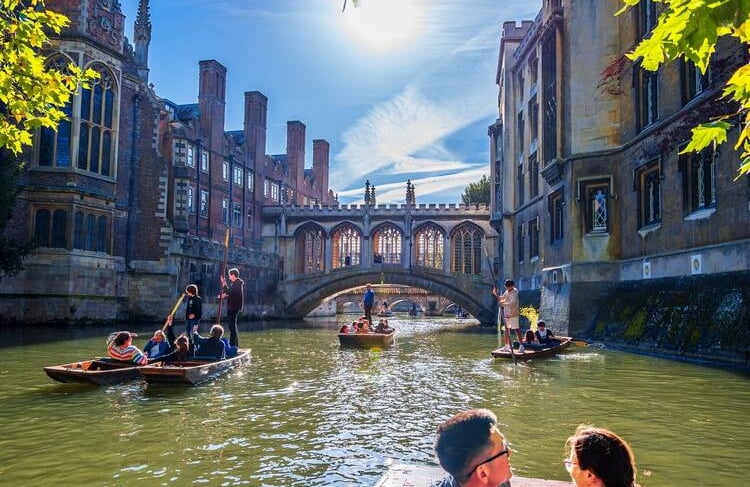

Cambridge Junction – Business Plan & ROI Model
Building the case for cultural investment through robust financial planning
I was commissioned by Cambridge City Council to deliver an independent operational business plan review and ROI model for the redevelopment of the Cambridge Junction, one of the UK’s leading contemporary arts and performance venues.
The Challenge
Cambridge Junction was at a turning point: the venue required redevelopment to meet changing audience needs and remain competitive within the cultural sector. The Council needed an independent assessment of the level of investment required and the return that could be expected—financially, socially and culturally.
Our Approach
Produced a detailed operational business plan review, setting out our thinking on the plans recommendations of future programming, staffing, governance and partnership models.
Developed a robust financial viability assessment of the plan and the income projections.
Benchmarked against comparable cultural venues nationally to evidence viability.
Provided clear recommendations on the scale and phasing of Council investment required and the potential operational return to the venue at the phased opening of the site.


The Retailery, Romford
Community-powered regeneration: blending culture, enterprise and local pride on the high street
The Retailery in Romford reimagined a struggling high street space as a vibrant, community-owned cultural and economic hub. Delivered in partnership with Things Made Public CIC and supported by the London Borough of Havering, the project transformed a disused department store into a creative ecosystem rooted in local identity and need.
Designed as a co-owned hub, the Retailery housed artists, makers, start-ups, social enterprises, cultural organisations and neighbourhood groups side by side. It offered a café-bar, performance space, co-working studio, incubator and event venue—bridging professional workspace with grassroots culture.
It hosted spoken word nights, art exhibitions, markets, fashion shows and youth mentoring schemes, becoming a place of connection across generations and cultures. The model proved that culture, when placed at the heart of community life, can lead high street renewal rather than follow it.
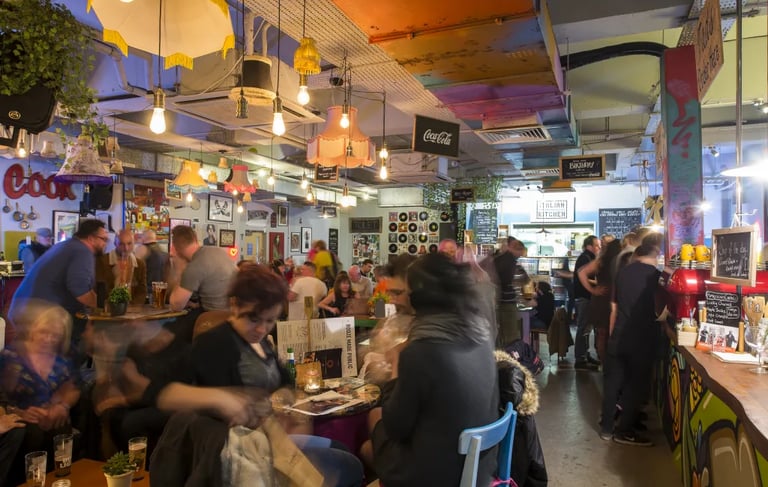

Purple Flag Academy, Sweden
Empowering diverse places through co-created visions and vibrant cultural economies
As Lead Consultant for the Purple Flag Academy Sweden, I worked with the Swedish Association of Towns and Cities, the Association of Town and City Management UK (ATCM), and partner consultants to design and deliver a transformative 12-month cultural regeneration programme for nine city and town centres.
The Challenge
Swedish city centres faced declining footfall, changing consumer behaviour and a weakening evening economy identity. The scale of working with nine municipalities—ranging from Stockholm and Malmö to smaller towns like Borås—made the task particularly complex.
Our Approach
Together with Björn Bergman (Svenska Stadskärnor) and Paul Davies (creator of Purple Flag), I developed a co-creation academy model. This included:
Place-based workshops and “night safaris” to observe centres after dark.
International study trips to London, Dublin and Dundee.
Multi-day charrettes in each town to co-design visions and strategies.
Each destination team co-developed a locally rooted Theory of Change and bespoke evening economy strategy, supported by a bilingual national toolkit.
Impact
All nine cities achieved Purple Flag accreditation—the first awarded outside the UK—demonstrating measurable improvements in cultural life, safety and visitor experience. The project reshaped Sweden’s approach to night-time economy and cultural planning, embedding participatory place management principles nationwide.
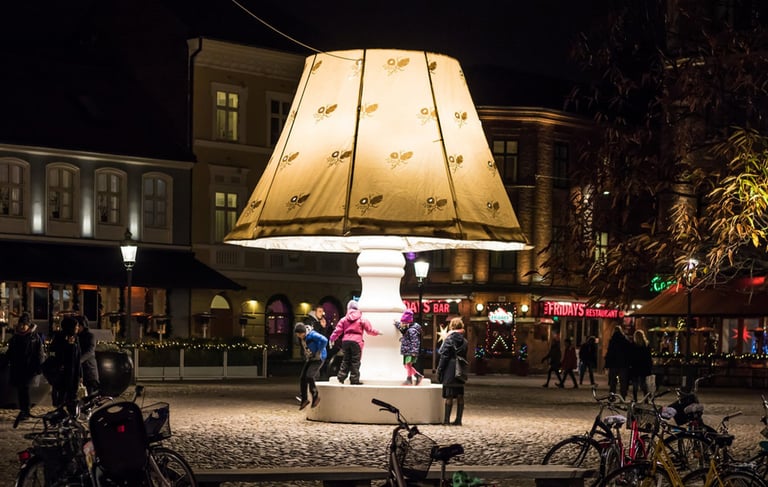

Leigh Long Term Plans For Towns
Developing a 10-year vision for inclusive, community-led regeneration
As managing Partner for Genecon I directed and supported Wigan Council and the newly founded Town Board in the development of the Long Term Plan for Towns for Leigh, shaping a 10-year framework for investment and renewal.
The Challenge
Leigh, like many post-industrial towns, face persistent challenges: retail decline, underutilised heritage assets, health inequalities, and the need to diversify their economic base. With government designating both towns for Long Term Plan for Towns funding, Wigan Council required a clear, evidence-based strategy that was both community-drivenand Green Book–compliant, setting out priorities for long-term growth and levelling up.
Our Approach
Facilitated deep community engagement, ensuring local residents, businesses and civic groups shaped the priorities for the plan.
Produced a comprehensive baseline analysis, identifying Wigan and Leigh’s strengths, challenges, and opportunities across economic, cultural, social and environmental dimensions.
Developed a 10-year investment framework, aligned with Long Term Plan for Towns requirements, focusing on:
Revitalising town centres through culture, heritage and public realm.
Supporting health and wellbeing through active travel and green space.
Driving inclusive economic growth and skills development.
Built a robust delivery and governance structure, ensuring accountability and local ownership of the strategy.
Impact
The Long Term Plan for Leigh Towns provided a clear, ambitious roadmap for Wigan and Leigh to access government investment and deliver inclusive regeneration. It has set the foundation for the Plans for Neighbourhood programme which will result in 10 years of sustained transformation, embedding local voices in decision-making and creating a framework for future funding, partnerships and delivery.
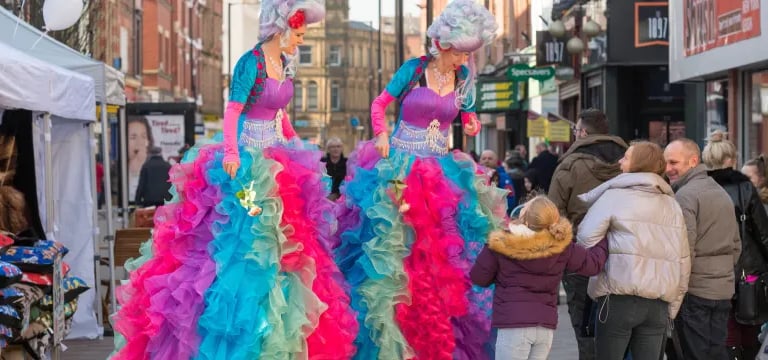

Helston & The Lizard – Economic and Tourism Revitalisation
Driving business-led regeneration and long-term destination growth
As Town Centre Manager and founder/director of the place management not-for-profit organisation HBIP, I led a transformative programme of economic and tourism revitalisation across Helston and the wider Lizard peninsula, working in partnership with Cornwall Council and Helston Town Council.
The initiative began with the creation of a robust business-led partnership, uniting traders, local employers and civic stakeholders to co-develop a 10-year growth strategy for Helston and its rural centres. This model brought the voice of business and community into the heart of planning and successfully unlocked investment to strengthen the local economy.
Building on this momentum, we established a Place Management Partnership, securing £600,000 of EU funding to deliver a long-term tourism strategy. This enabled the development of new attractions, enhancement of public amenities, and investment in events and activities that increased footfall and visitor spend.
A dedicated Destination Management Vehicle was created to coordinate activity, improve the public realm, and position Helston & The Lizard as a national and international visitor destination. From beautifying town centre spaces to curating cultural programming, the partnership fostered a vibrant, welcoming environment for both residents and visitors.
The impact was significant: Helston & The Lizard was recognised nationally as an example of best practice, winning both Town Team of the Year and Partnership of the Year at the ATCM Awards. I was personally honoured with the Chairman’s Award for Contributions to Placemaking - one of the most prestigious individual accolades in the industry- for my leadership in shaping this pioneering model.
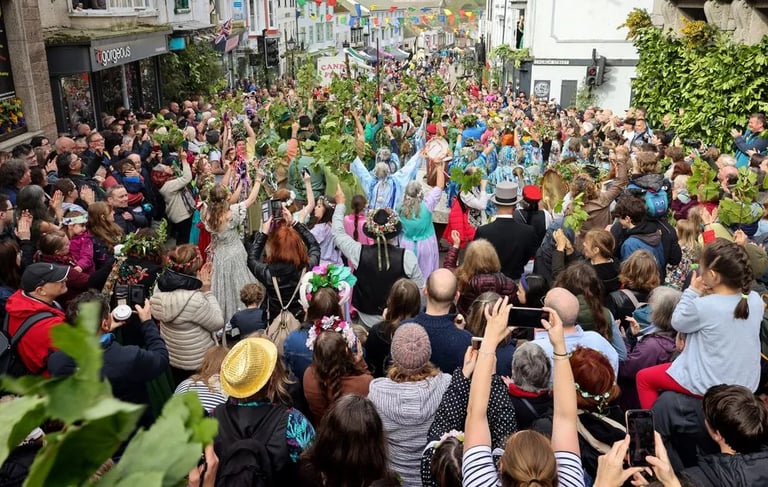

Barnsley Levelling Up Fund (Round 2)
Reclaiming brownfield land for culture, sport and community life
I led the development of Barnsley Metropolitan Borough Council’s LUF Round 2 business case, securing £10.2 millionfor a flagship urban regeneration project.
The Challenge
Barnsley’s town centre required new identity and vibrancy to address the legacy of industrial decline. A large brownfield site presented both challenge and opportunity for transformation.
Our Approach
Developed a comprehensive Green Book–compliant business case for a new urban park on a central brownfield site.
The park included BMX rally facilities, a skatepark, green space and cultural event capacity, designed to attract families, young people and visitors.
Delivered an integrated economic development strategy connecting the park to Barnsley’s wider regeneration framework.
Positioned the project as a catalyst for wellbeing, active lifestyles, and youth engagement.
Impact
The bid was successful, securing £10.2m in LUF funding. The new park is set to become a landmark cultural and sporting attraction, reinvigorating the town centre and contributing to Barnsley’s broader transformation.
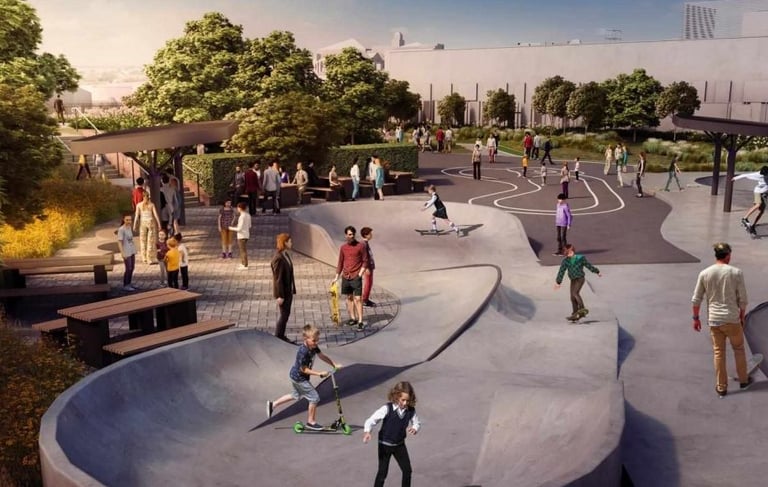

Shropshire Levelling Up Fund (Round 2)
Transforming town centres through heritage-led regeneration
As Managing Partner at Genecon, I led the development of a Levelling Up Fund Round 2 business case for Shropshire Council, securing £18.7 million to deliver a transformative regeneration programme.
The Challenge
Shropshire needed to revitalise its largest market town centres in the face of declining retail, underused assets, and pressures on heritage sites. The Council required a Green Book–compliant business case to attract investment and set a framework for long-term regeneration.
Our Approach
Designed a central project: the redevelopment of a major shopping centre, reimagining it as a mixed-use anchor for Shrewsbury’s town centre.
Developed a comprehensive programme of public realm, transport and cultural infrastructure investments.
Produced a Green Book–compliant business case and development strategy for Ellesmere’s historic attraction, ensuring its future sustainability.
Aligned the programme with national levelling up objectives and local ambitions for economic resilience.
Impact
The Shropshire LUF bid was awarded full funding, unlocking investment that will transform the town centre, protect heritage, and create a stronger economic base. The strategy now provides a blueprint for rural-urban regeneration across the county.
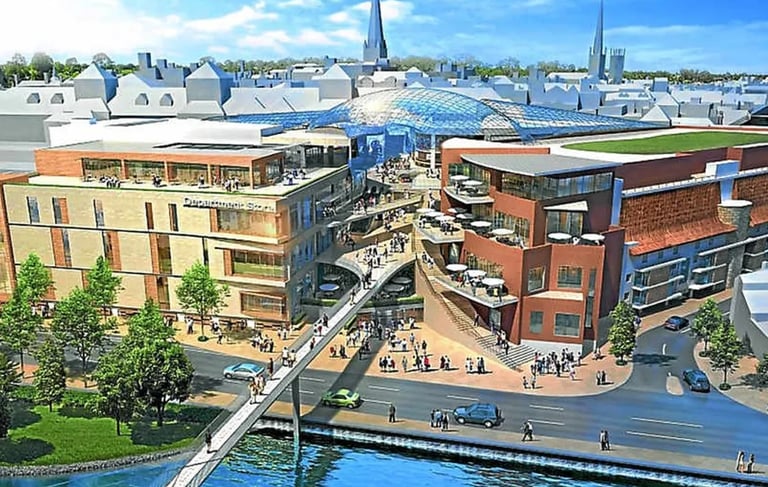

Doncaster Green Opportunities – Inward Investment Strategy
Positioning Doncaster as a hub for green growth and sustainable investment
I led the development of the Doncaster Green Opportunities Inward Investment Strategy, designed to grow Doncaster’s green sector and attract significant new investment into the city.
The Challenge
Doncaster’s economy was undergoing transition, with strong assets in logistics, advanced manufacturing and aviation but a need to diversify into green growth sectors. The Council required a compelling strategy to position Doncaster as a national leader in renewable energy, low carbon technologies, and green skills.
Our Approach
Conducted a comprehensive sector analysis to identify Doncaster’s competitive advantages across renewables, advanced manufacturing, and circular economy industries.
Engaged with businesses, investors and educational institutions to co-design opportunities for growth.
Developed a place-based inward investment narrative, showcasing Doncaster as a strategic location for green business.
Produced a delivery framework for targeting investors, aligning skills provision with employer needs, and leveraging Doncaster’s strong connectivity.
Impact
The strategy positioned Doncaster as a green investment destination, enabling the Council to pursue opportunities in renewables and low-carbon industry. It created a framework to attract inward investors, grow local businesses, and develop a skilled workforce fit for the green economy.


Purple Flag Academy, Ireland
Building national infrastructure for a vibrant night-time economy
As Lead Consultant with ATCM, I co-designed and delivered Ireland’s first Purple Flag Development Academy, in partnership with DublinTown BID, supporting multiple towns to transform their evening and night-time economies.
The Challenge
Ireland’s town centres faced fragmented night-time governance, safety concerns and a lack of structured frameworks to diversify activity beyond alcohol. The goal was to create both immediate improvements and a national structure to embed best practice.
Our Approach
Ran a 12-month development academy, including charrettes, study visits and exemplar events across Irish towns.
Partnered with DublinTown BID to deliver training, mentoring, and on-the-ground development support.
Established the infrastructure for further Purple Flag accreditations, including governance models and practitioner networks.
Impact & Legacy
The Academy delivered Ireland’s first Purple Flag accreditations, creating a robust national framework for safe, inclusive, and diverse night-time economies. Ten years on, Ireland now has a strong network of night-time managers, accredited towns, and a new generation of practitioners leading ENTE policy and delivery.
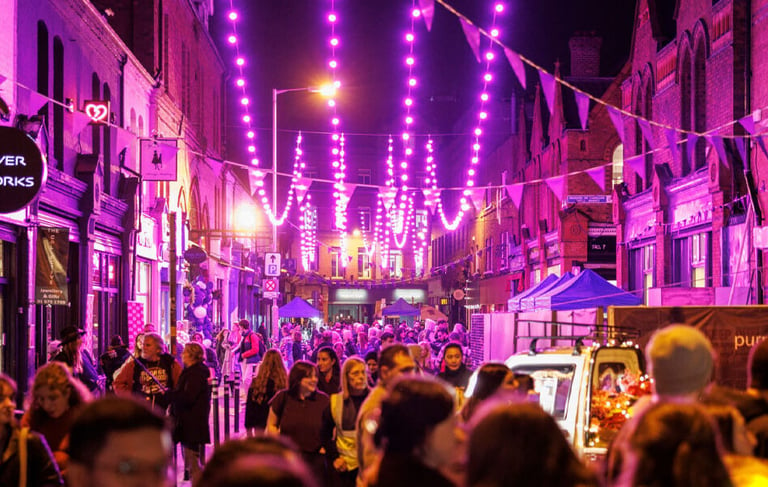

Romford BID & RTMP – Business Partnership and Night-Time Economy Diversification
Driving town centre transformation through business-led collaboration and cultural innovation
Appointed by Havering Council as Town Centre Growth Consultant, I designed and delivered a programme of partnership building and regeneration that has reshaped Romford’s town centre.
The Challenge
Romford required a new governance structure to revitalise its town centre, diversify its night-time economy, and deliver investment in its historic market square.
Our Approach
Established the Romford Town Management Partnership (RTMP), uniting businesses, civic leaders and cultural organisations.
Developed and delivered the programme to establish the Romford BID, successfully voted in 2018 (now in its second term).
Secured £2 million from the GLA to transform the market square, including public realm and event infrastructure.
Supported a local cultural not-for-profit to introduce a street art programme, meanwhile use cultural activities, and a new town centre brand.
Advised and supported the diversification of the night-time economy, including new food, music, and cultural initiatives to rebalance Romford’s evening offer.
Impact
Romford’s town centre has been re-energised, with a more diverse economy, stronger cultural identity, and improved governance. The BID and RTMP continue to provide long-term leadership, embedding business and community voices at the heart of Romford’s regeneration.
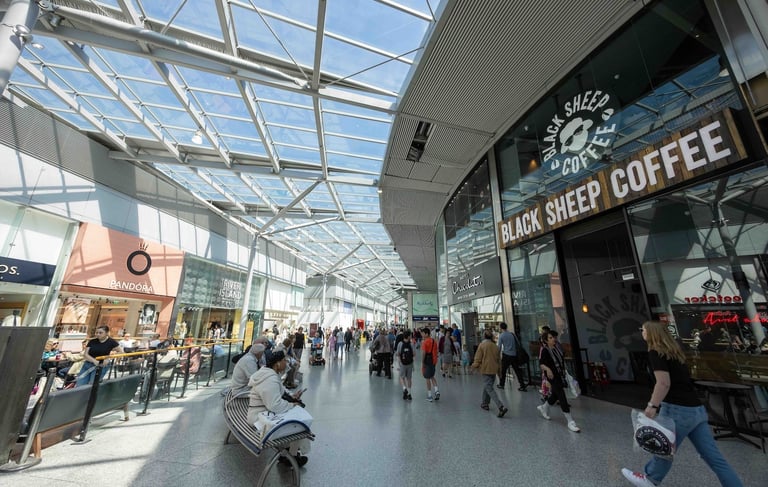

Contact
jonnybirkett@theplace-maker.co.uk
07432 485303
